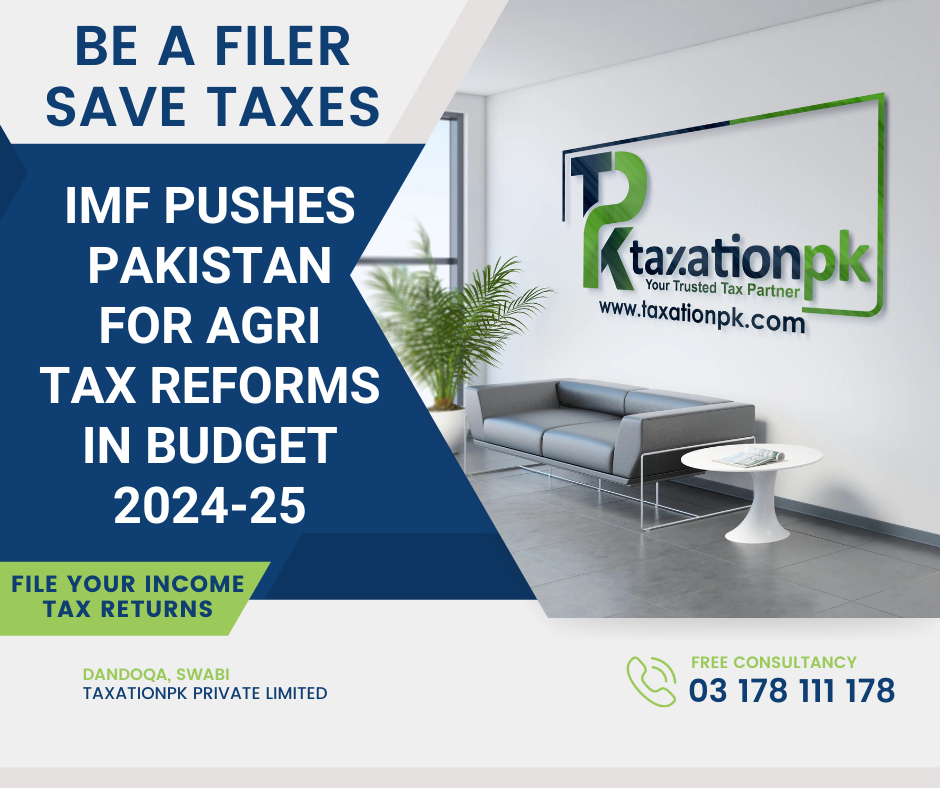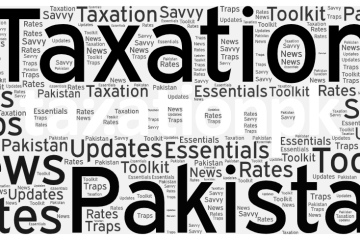The International Monetary Fund (IMF) is urging Pakistan to implement significant tax reforms and transparency measures in the upcoming budget for fiscal year 2024-25. These demands come as part of ongoing negotiations for a bailout program.
Key IMF Demands
- Taxing Agricultural Income: The IMF highlights that the agriculture sector, a significant contributor to Pakistan’s economy, pays minimal taxes compared to its income. They are urging the government to introduce a tax on agricultural income.
- Enhanced Provincial Tax Collection: The IMF emphasizes the need for improved tax collection by provincial governments. They suggest utilizing the National Tax Council to establish a more robust provincial tax system. Currently, provincial tax contributions to national revenue are reportedly minimal, hovering around 1%.
- Full Property and Service Tax Collection: The IMF is also pushing for stricter enforcement of property taxes and sales taxes on services across all provinces.
Transparency Measures
- Public Asset Declaration Portal: The IMF previously demanded a public portal for government officials, including ministers, parliamentarians, and public servants, to declare their assets. While a Performa for asset disclosure exists, it hasn’t been made public, raising concerns about transparency. As per the agreement with the IMF, Pakistan is obligated to create a public asset declaration portal.
- Banking Regulations for Asset Disclosure: The IMF has reportedly directed the government to require banks to collect asset information from government officials opening new accounts. This measure aims to strengthen financial transparency.
Current Situation and Challenges
The Pakistani government faces the challenge of implementing these reforms while navigating potential resistance from various stakeholders. Implementing a tax on agricultural income could be met with opposition from farmers, and stricter tax collection across the board might face challenges in enforcement. Establishing a public asset declaration portal and implementing stricter banking regulations would require legislative and administrative changes.
Conclusion
The IMF’s demands highlight the need for Pakistan to broaden its tax base, improve tax collection efficiency, and enhance transparency in government. While these reforms are crucial for securing potential IMF support and ensuring long-term financial stability, successful implementation requires careful consideration of potential economic and political implications.







